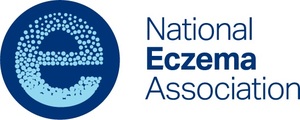NOVATO, Calif., Nov. 17, 2023 /PRNewswire/ -- The National Eczema Association (NEA) announces the publication of new research on the burden of prescription treatments for comorbid conditions for patients with atopic dermatitis (AD). Titled "Financial and treatment access burden associated with atopic dermatitis comorbidities," the research letter was published online in Annals of Allergy, Asthma, and Immunology (AAAI), the peer-reviewed scientific journal of the American College of Allergy, Asthma and Immunology (ACAAI).
Atopic dermatitis (AD), the most common form of eczema, is a chronic and inflammatory skin condition associated with a considerable multidimensional burden of disease, which can include the presence of comorbid conditions. Previous research has revealed that patients with AD often face polypharmacy, high out-of-pocket (OOP) costs, and insurance coverage issues for AD prescriptions. However, the added burden of using, accessing, and paying for prescription treatments to manage comorbid conditions has not been elucidated.
With this study, NEA aimed to investigate the patient-reported frequency of both atopic and nonatopic comorbidities, prescription treatment use for comorbid conditions, and accessibility barriers to those treatments.
"With every research study we conduct, we aim to get closer to a full understanding of the lived experience of eczema in order to improve the lives of patients and families," said Wendy Smith Begolka, chief strategy officer at NEA. "We know AD patients can have associated comorbidities that also require prescription treatments, yet we haven't had a holistic view of the access and financial burdens they face."
Findings from NEA's study revealed that AD patients were using, on average, nearly 6 prescriptions in the past year to manage their AD and associated conditions, and over 1 in 4 had challenges obtaining medications for their comorbid conditions.
Most patients who faced an insurance coverage issue for a comorbid condition also faced at least one coverage issue for an AD prescription in the same 12-month period. These findings indicate that the negative impacts from coverage issues for AD treatments can be exacerbated by the treatment issues faced for additional, related diagnoses, potentially leading to higher out-of-pocket costs, and discontinuity in treatment due to missed doses of prescribed medications.
The study also identified opportunities for future research to focus on the impact AD treatments may have on comorbidities. Some treatments may not only improve AD symptoms but alleviate atopic comorbidities as well. This could lower the need for additional prescription treatments and mitigate the substantial treatment cost and access burdens faced by patients.
For more information about research conducted by NEA, visit: NationalEczema.org/surveys.
About the National Eczema Association
Founded in 1988, the National Eczema Association (NEA) is a 501(c)(3) nonprofit and the largest patient advocacy organization serving the over 31 million Americans who live with eczema and those who care for them. NEA provides programs and resources to elevate the diverse lived experience of eczema, and help patients and caregivers understand their disease, actively engage in their care, find strength in one another – and improve their lives. Additionally, NEA advances critical eczema research and partners with key stakeholders to ensure the patient voice is represented and valued in education, care and treatment decision-making. The eczema community is at an exciting juncture, with increased recognition of the seriousness and burden of eczema and a surge in scientific interest and development of new treatments. Bolstered by NEA's strategic plan, Blueprint 2025, we are driving toward the ultimate vision: a world without eczema. Learn more at NationalEczema.org.
SOURCE National Eczema Association

WANT YOUR COMPANY'S NEWS FEATURED ON PRNEWSWIRE.COM?
Newsrooms &
Influencers
Digital Media
Outlets
Journalists
Opted In






Share this article